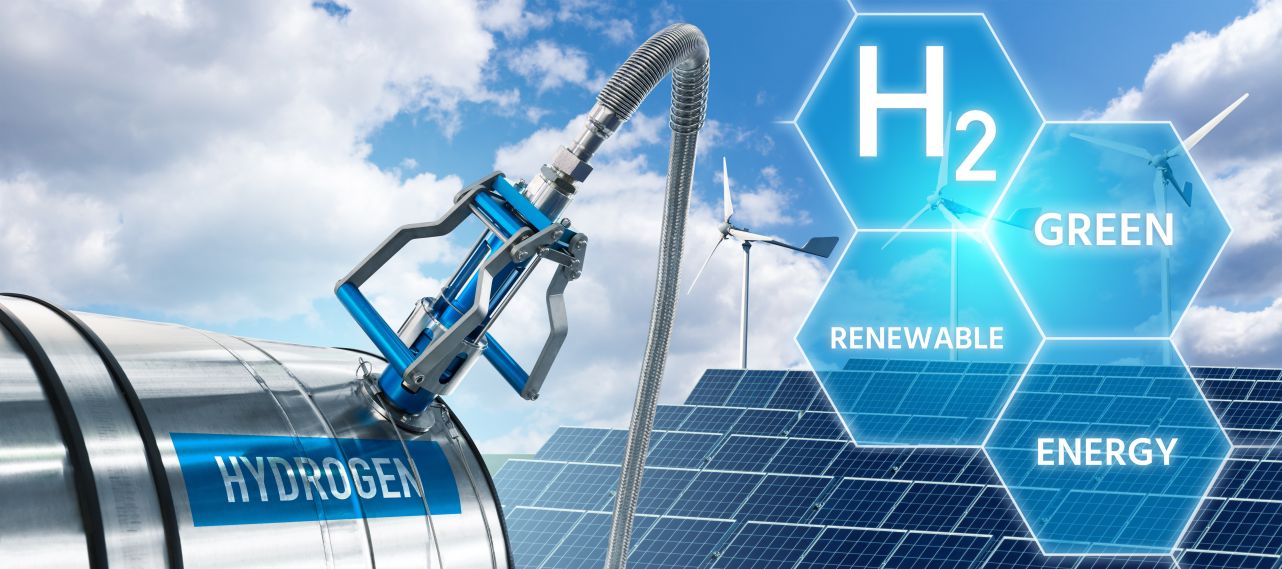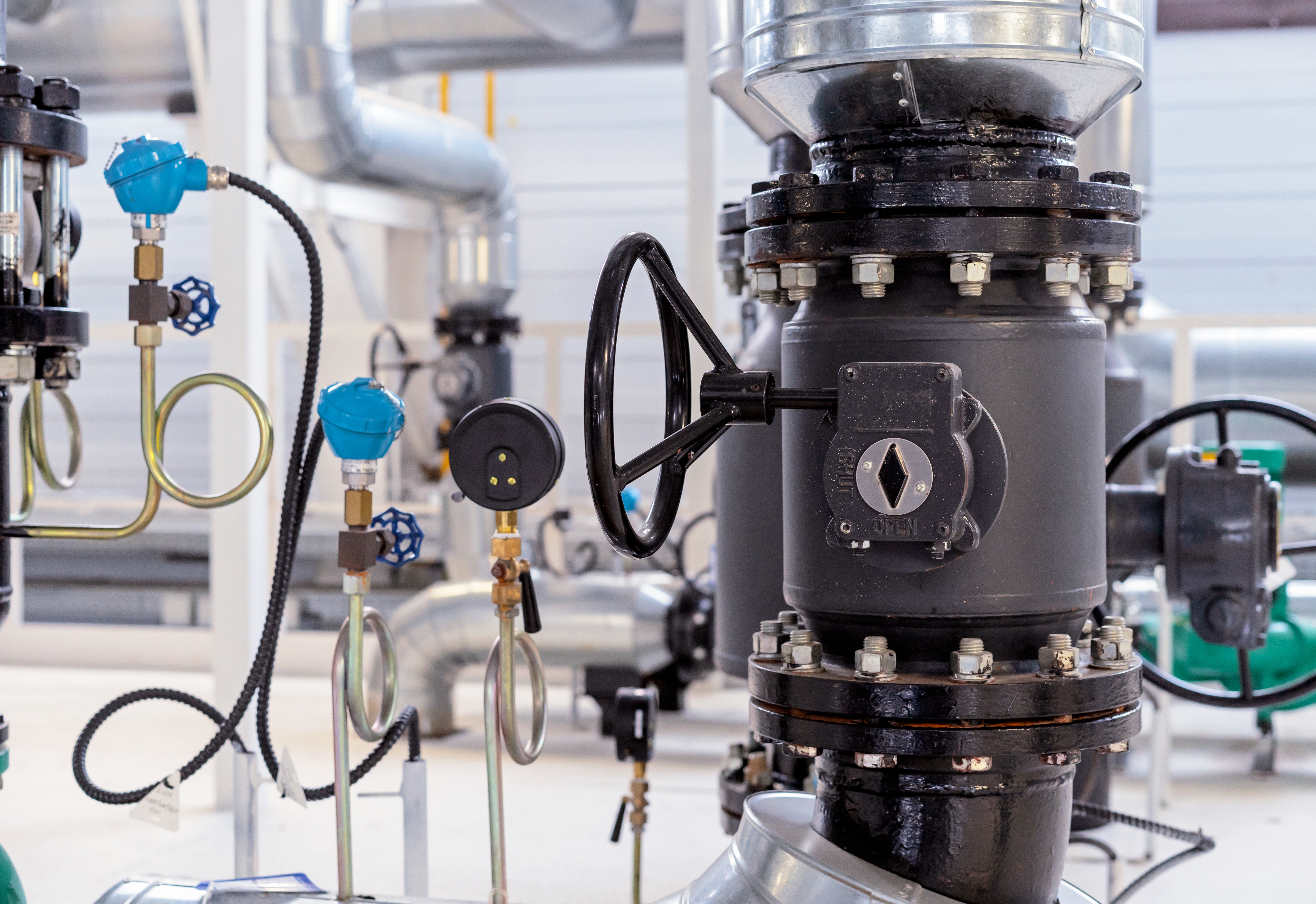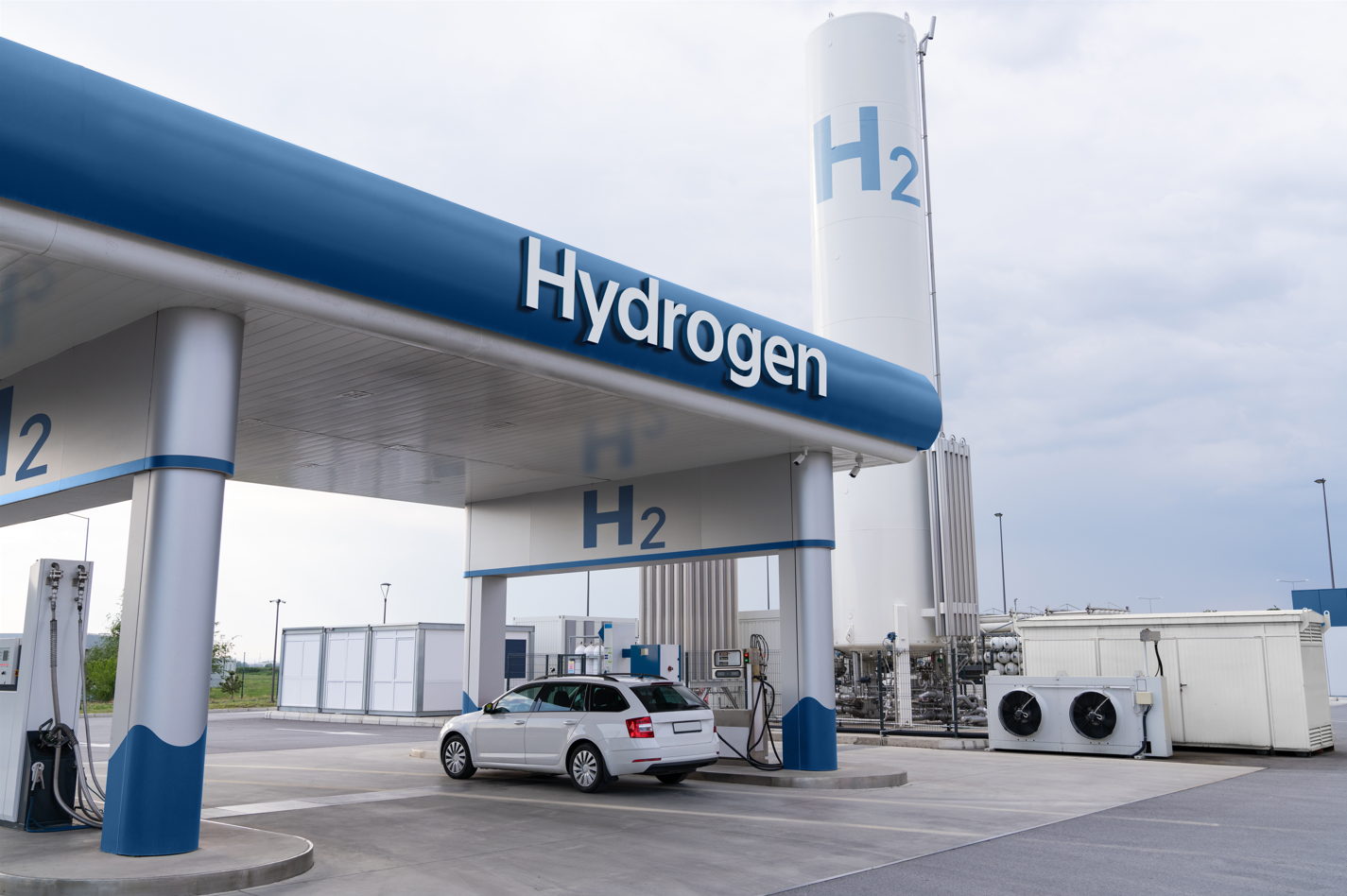Featured Articles
2023-01-17
The competitiveness of auto suppliers will depend on diversified power technologies led by hydrogen power
 Most of the OE brand boosts their development in Hydrogen power
Most of the OE brand boosts their development in Hydrogen powerTata Motors with Strong Ambition to Break through the Framework of Hydrogen Vehicles
Even though India, is officially set to have zero emissions by 2070, the largest Tata Motors Group has already prepared for a rainy day and has begun to actively get involved in hydrogen vehicles. Nitin Gadkari, Minister of Road Transport and Highways of India, even revealed that the Indian government is working hard to promote various alternative fuels to reduce its carbon footprint. While lithium vehicles are the current focus, not only automakers, but even the Indian government believe that hydrogen energy is an important contributor to the ultimate goal of carbon neutrality.
Tata Motors itself has already obtained the project cooperation plan of the Indian government, invested in the development of fuel cell technology, established a special technical laboratory, and developed its hydrogen processing and onboard storage capabilities, and related safety systems. In 2021, a bidding order for 15 hydrogen buses was obtained, using Canada's Ballard hydrogen-based proton exchange membrane (PEM) fuel cells, and hydrogen fuel will be provided by Indian Oil Corporation.
In November 2022, the group signed an agreement with Cummins of the United States to develop hydrogen-powered internal combustion engines, fuel cells, and lithium vehicle systems for commercial vehicles in India. Cummins is a well-known engine manufacturer and has formed a joint venture with Tata Motors since 1993 to produce mid-range B-series diesel engines for the latter. Cummins' hydrogen fuel cell engine is in its fourth generation. Tata Motors also plans to showcase a hydrogen prototype at the 2023 Auto Expo.
The biggest significance of Tata Motors' positive attitude toward hydrogen vehicles is that car manufacturers without fuel cell technology can still obtain them from independent professional engine suppliers following the model of fuel vehicles in the past. Furthermore, even in a developing country like India, the Indian government's attitude towards embracing hydrogen energy is positive and affirmative, breaking the framework that the development of hydrogen energy vehicles is limited to developed countries. Due to India's vast territory, complex terrain and climate, and unstable power supply quality, lithium vehicles are not an ideal choice.
The Potential of Hydrogen Energy Is Broad and can Surpass the Performance and Layout of Fuel Vehicles
The largest market for automobiles is passenger cars, which are extremely price-sensitive. It is necessary to establish a mass production scale to reduce costs. The high-cost threshold of hydrogen fuel cells has always been considered as a stumbling block hindering the popularization of hydrogen vehicles. However, the governments of major countries in the world and the automotive industry have increasingly understood that hydrogen energy vehicles are the ultimate zero-emission solution, thus prompting the entire hydrogen energy supply chain to try to develop various useful technologies. The hydrogen boom broke out in 2022. Manufacturers, including Porsche and Toyota, have verified that hydrogen fuel can replace gasoline in internal combustion engines without sacrificing performance. Although some parts need to be redeveloped, there is a great opportunity for practical application in the future, which can extend the service life of internal combustion engines and effectively reduce the cost of hydrogen vehicles. Brands or car manufacturers that intend to or have used fuel cells to produce hydrogen passenger cars have included Rolls-Royce, BMW Toyota, Hyundai, and even Tata Motors, which have included the top, high-end, mid-priced low-priced models.
In terms of heavy vehicles, the H2Accelerate alliance of Daimler Trucks, IVECO, and Volvo Group, as well as hydrogen infrastructure suppliers Linde, OMV, Shell, and Total Energies, released in September 2022 pointed out that the expected total cost of ownership analysis of fuel cell and diesel trucks based on the three deployment phases before full industrialization in the next decade is previously completed, if the policy support is correct. Hydrogen-fueled trucks could compete with diesel as early as 2030; If net-zero emissions reduction targets by 2050 are to be met, hydrogen trucking must begin deploying now to expand green hydrogen and truck production and reduce costs.
The mining of rare precious metals such as lithium and platinum, which are necessary for lithium batteries, requires the use of overweight trucks, large machinery, and generators, often relying on diesel or other fossil fuels, and is estimated to account for about 4% to 7% of total global emissions into the atmosphere. The mining industry must adapt to the situation and explore alternatives that can maintain normal operations while reducing carbon emissions, with hydrogen energy being the only option.
From the above analysis, we can understand that hydrogen energy, in all types of automobiles, in practice, can indeed achieve a complete replacement of fossil fuels.
The Competitiveness of Auto Suppliers Depending on the Ability to Provide Diversified Power Technologies
Although the market for hydrogen vehicles is still in its infancy, in 2022, from the technical and market perspectives, it has fully demonstrated that this inevitable trend is becoming more and more obvious, and it is developing toward diversity.
New energy vehicles using a single technology have their problems at present. The sales volume of the lithium vehicle market has gradually opened up, and the cost has gradually decreased. However, problems such as long charging time, insufficient battery life, unstable power supply in backward areas, and intolerance to low temperatures cannot be resolved in a short time. The above phenomenon highlights the relative advantages of hydrogen vehicles. However, the high cost and insufficient hydrogen fuel infrastructure make the market progress slowly. Therefore, the solution at this stage is to develop and provide a variety of technologies. On the one hand, it can meet the needs of customers, and on the other hand, it can respond to the varying conditions of the market environment, and achieve the goal of zero emissions. That is to say, the technology that symbolizes the gradual zero emission of the automobile industry will enter into diversification, including lithium battery, hydrogen fuel cell electric, plug-in hybrid electric and gasoline-electric hybrid electric vehicles, etc. The two major European and Japanese automakers, BMW and Toyota Motor, both came up with the same conclusions above. According to BMW chairman Oliver Zipse, the company plans to offer five different drivetrain options over the next few years, each with its alternative fuel option. Toyota President Akio Toyoda said at the company's 60th-anniversary commemoration of entering the Thai market that it is the right vision to develop towards diversification including hydrogen vehicles, hybrid vehicles, fuel vehicles, and lithium vehicles. Furthermore, due to the shortage of auto parts in the past three years, the development of auto diversification can reduce the impact. More and more car manufacturers, such as Honda and Stellantis, are indeed responding to the diversification of vehicle power systems in action, and even set up proprietary production lines to manufacture vehicles of various styles through special designs and flexible production processes.
However, this trend of diversifying the power sources of automobiles is only a compromise solution in the transitional period. In the future, while the hydrogen fuel infrastructure is gradually in place, it is bound to move towards an era where hydrogen vehicles will be the only ones. Automakers and parts suppliers that cannot provide diversified technologies at this stage will face tougher competitive pressures.
References
Even though India, is officially set to have zero emissions by 2070, the largest Tata Motors Group has already prepared for a rainy day and has begun to actively get involved in hydrogen vehicles. Nitin Gadkari, Minister of Road Transport and Highways of India, even revealed that the Indian government is working hard to promote various alternative fuels to reduce its carbon footprint. While lithium vehicles are the current focus, not only automakers, but even the Indian government believe that hydrogen energy is an important contributor to the ultimate goal of carbon neutrality.
Tata Motors itself has already obtained the project cooperation plan of the Indian government, invested in the development of fuel cell technology, established a special technical laboratory, and developed its hydrogen processing and onboard storage capabilities, and related safety systems. In 2021, a bidding order for 15 hydrogen buses was obtained, using Canada's Ballard hydrogen-based proton exchange membrane (PEM) fuel cells, and hydrogen fuel will be provided by Indian Oil Corporation.
In November 2022, the group signed an agreement with Cummins of the United States to develop hydrogen-powered internal combustion engines, fuel cells, and lithium vehicle systems for commercial vehicles in India. Cummins is a well-known engine manufacturer and has formed a joint venture with Tata Motors since 1993 to produce mid-range B-series diesel engines for the latter. Cummins' hydrogen fuel cell engine is in its fourth generation. Tata Motors also plans to showcase a hydrogen prototype at the 2023 Auto Expo.
The biggest significance of Tata Motors' positive attitude toward hydrogen vehicles is that car manufacturers without fuel cell technology can still obtain them from independent professional engine suppliers following the model of fuel vehicles in the past. Furthermore, even in a developing country like India, the Indian government's attitude towards embracing hydrogen energy is positive and affirmative, breaking the framework that the development of hydrogen energy vehicles is limited to developed countries. Due to India's vast territory, complex terrain and climate, and unstable power supply quality, lithium vehicles are not an ideal choice.
The Potential of Hydrogen Energy Is Broad and can Surpass the Performance and Layout of Fuel Vehicles
The largest market for automobiles is passenger cars, which are extremely price-sensitive. It is necessary to establish a mass production scale to reduce costs. The high-cost threshold of hydrogen fuel cells has always been considered as a stumbling block hindering the popularization of hydrogen vehicles. However, the governments of major countries in the world and the automotive industry have increasingly understood that hydrogen energy vehicles are the ultimate zero-emission solution, thus prompting the entire hydrogen energy supply chain to try to develop various useful technologies. The hydrogen boom broke out in 2022. Manufacturers, including Porsche and Toyota, have verified that hydrogen fuel can replace gasoline in internal combustion engines without sacrificing performance. Although some parts need to be redeveloped, there is a great opportunity for practical application in the future, which can extend the service life of internal combustion engines and effectively reduce the cost of hydrogen vehicles. Brands or car manufacturers that intend to or have used fuel cells to produce hydrogen passenger cars have included Rolls-Royce, BMW Toyota, Hyundai, and even Tata Motors, which have included the top, high-end, mid-priced low-priced models.
In terms of heavy vehicles, the H2Accelerate alliance of Daimler Trucks, IVECO, and Volvo Group, as well as hydrogen infrastructure suppliers Linde, OMV, Shell, and Total Energies, released in September 2022 pointed out that the expected total cost of ownership analysis of fuel cell and diesel trucks based on the three deployment phases before full industrialization in the next decade is previously completed, if the policy support is correct. Hydrogen-fueled trucks could compete with diesel as early as 2030; If net-zero emissions reduction targets by 2050 are to be met, hydrogen trucking must begin deploying now to expand green hydrogen and truck production and reduce costs.
The mining of rare precious metals such as lithium and platinum, which are necessary for lithium batteries, requires the use of overweight trucks, large machinery, and generators, often relying on diesel or other fossil fuels, and is estimated to account for about 4% to 7% of total global emissions into the atmosphere. The mining industry must adapt to the situation and explore alternatives that can maintain normal operations while reducing carbon emissions, with hydrogen energy being the only option.
From the above analysis, we can understand that hydrogen energy, in all types of automobiles, in practice, can indeed achieve a complete replacement of fossil fuels.
The Competitiveness of Auto Suppliers Depending on the Ability to Provide Diversified Power Technologies
Although the market for hydrogen vehicles is still in its infancy, in 2022, from the technical and market perspectives, it has fully demonstrated that this inevitable trend is becoming more and more obvious, and it is developing toward diversity.
New energy vehicles using a single technology have their problems at present. The sales volume of the lithium vehicle market has gradually opened up, and the cost has gradually decreased. However, problems such as long charging time, insufficient battery life, unstable power supply in backward areas, and intolerance to low temperatures cannot be resolved in a short time. The above phenomenon highlights the relative advantages of hydrogen vehicles. However, the high cost and insufficient hydrogen fuel infrastructure make the market progress slowly. Therefore, the solution at this stage is to develop and provide a variety of technologies. On the one hand, it can meet the needs of customers, and on the other hand, it can respond to the varying conditions of the market environment, and achieve the goal of zero emissions. That is to say, the technology that symbolizes the gradual zero emission of the automobile industry will enter into diversification, including lithium battery, hydrogen fuel cell electric, plug-in hybrid electric and gasoline-electric hybrid electric vehicles, etc. The two major European and Japanese automakers, BMW and Toyota Motor, both came up with the same conclusions above. According to BMW chairman Oliver Zipse, the company plans to offer five different drivetrain options over the next few years, each with its alternative fuel option. Toyota President Akio Toyoda said at the company's 60th-anniversary commemoration of entering the Thai market that it is the right vision to develop towards diversification including hydrogen vehicles, hybrid vehicles, fuel vehicles, and lithium vehicles. Furthermore, due to the shortage of auto parts in the past three years, the development of auto diversification can reduce the impact. More and more car manufacturers, such as Honda and Stellantis, are indeed responding to the diversification of vehicle power systems in action, and even set up proprietary production lines to manufacture vehicles of various styles through special designs and flexible production processes.
However, this trend of diversifying the power sources of automobiles is only a compromise solution in the transitional period. In the future, while the hydrogen fuel infrastructure is gradually in place, it is bound to move towards an era where hydrogen vehicles will be the only ones. Automakers and parts suppliers that cannot provide diversified technologies at this stage will face tougher competitive pressures.
References
- INSIDEEVs, 2021-05-20, Mark Kane, VW's Herbert Diess Says To Ditch Hydrogen Cars, Focus On BEVs
- Business Insider, 2022-02-19, Elias Holdenried, Volkswagen arbeitet weiter an der Brennstoffzelle — das beweist ein still und leise veröffentlichtes Patent
- Porsche Newsroom, 2022-08-18, Mastering the Nordschleife with hydrogen
- Hydrogen Fuel News, 2022-10-27, Julie Campbell, Why BMW Chair Oliver Zipse says hydrogen cars will be the “hippest thing” on the road
- Electrive, 2022-10-21, Chris Randall, Is Hyundai pulling out of hydrogen project in Switzerland?
- Toyota UK Magazine, 2022-12-9, Jake Weaver, Hydrogen Corolla Cross begins testing in Japan
- Honda Media Newsroom, 2022-11-30, Honda To Begin U.S. Production of Fuel Cell Electric Vehicles in 2024
- Mobility Outlook, T Murrali,2022-10-30, Stellantis Takes Next Step In Commercializing Hydrogen Fuel Cell
- V3Cars, 2022-12-25, Amit Saraswat, Tata Motors Likely To Showcase Hydrogen Fuel Cell Concept At The Auto Expo 2023
- FCHEA, 2022-07-25, Nova Thayer, Hydrogen in the Mining Industry
- H2Accelerate, 2022-09-05, Hydrogen trucking could be competitive with diesel as early as 2030, given the right policy support, according to a new whitepaper from the H2Accelerate collaboration



